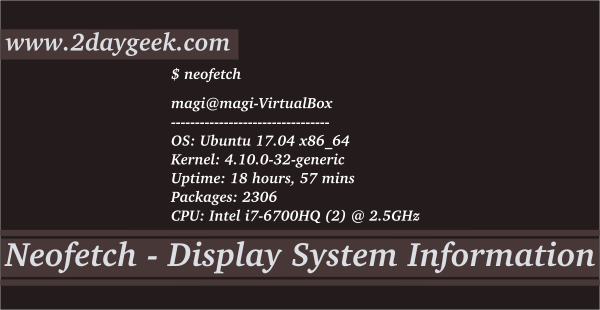
17 Ways to check size of physical memory (RAM) in Linux
Most of the system administrators checks CPU & Memory utilization when they were facing some performance issue. There is lot of utilities are available in Linux to check physical memory.These …
17 Ways to check size of physical memory (RAM) in Linux Read More
